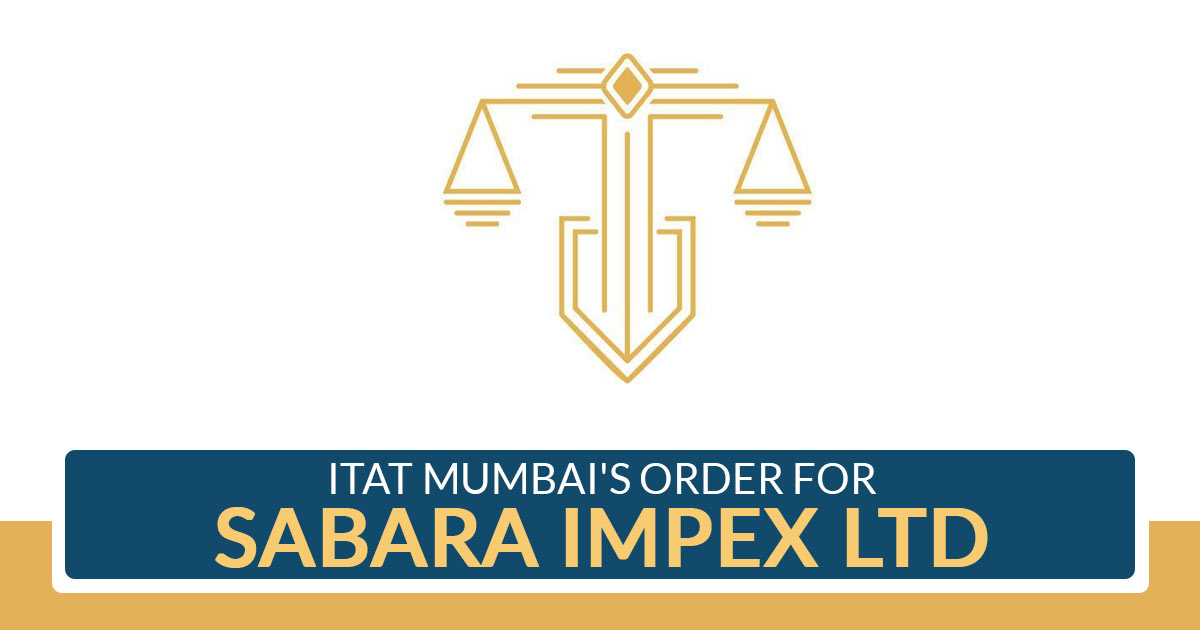
When the assessee did not disclose all material information in the income tax return, the Mumbai bench of the Income Tax Appellate Tribunal (ITAT) upheld the penalty under section 271(1)(c) of the Income Tax Act, 1961.
The assessee, Sabara Impex Ltd., submitted its income tax return on January 12, 1997, stating a total income of Rs. 22,40,430. DDIT conducted a study about M/s Geekay Exim India Ltd.
The survey revealed that some group companies were dealing with hypothetical medicinal products without really delivering them. Shri Rais Ahmed, director of M/s Geekay Exim India Ltd., made a statement according to Section 131, which was recorded. The assessee firm also has Shri Rais Ahmed on its board of directors.
The assessee sold every item that was purchased to M/s Ebers Pharmaceuticals Ltd. There were no delivery challans or other documents proving transportation to back up these transactions or sales. For these acquisitions, there had been no payments made, and the aforementioned parties’ various creditors had not received any confirmation.
Read Also: ITAT: Revised ITR Not Amount to Non-Filing of Tax Return, 115BAA Denial is Invalid
The idea that penalty processes are distinct from assessment proceedings and that the addition of a quantum action does not automatically result in the imposition of a penalty cannot be contested.
It was believed that because the assessee had withheld some information from the return of income and the claim of the assessee was not legally supported, the assessee had either provided false information or had concealed income.
Since the assessee’s case was not addressed by any specific elaboration, it did not follow that a penalty couldn’t be levied if there was no struggle to identify the tax that was being attempted to be evaded. The numerous explanations to section 271(1)(c) only serve to clarify the ambiguity in the provisions relating to the imposition of penalty.
According to section 271(1) of the IT Act, there is a penalty for withholding correct information or concealing income information, and the amount of the penalty depends on the amount of tax that is being attempted to be avoided.
In order to conceal their income, the assessee provided false information about their income when filing their return, according to a Coram made up of Judge Vikas Awasthy and Accountant Member Shri Gagan Goyal.
As a result, the provisions of Section 271(1)(c) are applicable to the assessee in this situation. With the dishonest goal of hiding its income, the assessee omitted to present the aforementioned earnings for taxes while filing the return of income.
Furthermore, the assessee has not provided any convincing justification in this respect; as a result, the assessee failed to provide complete and correct disclosure of the facts when calculating its income and submitted an income return with false information, hiding its taxable income.
As the principal onus in the case under the Explanations to section 271(1)(c) of the Income Tax Act has not been discharged by the assessee, the Tribunal determined that the assessee has failed to put out a case for avoiding the levy of penalty in its case and affirmed the imposition of penalty.
| Case Title | Sabara Impex Ltd vs ITO |
| Citation | ITA No. 3267/Mum/2013 (A.Y. 1996-97) ITA No. 404/Mum/2016 (A.Y. 1996-97) |
| Date | 17.11.2022 |
| Respondent by | Ms. Nilu Jaggi, Sr.DR |
| Mumbai ITAT | Read Order |









